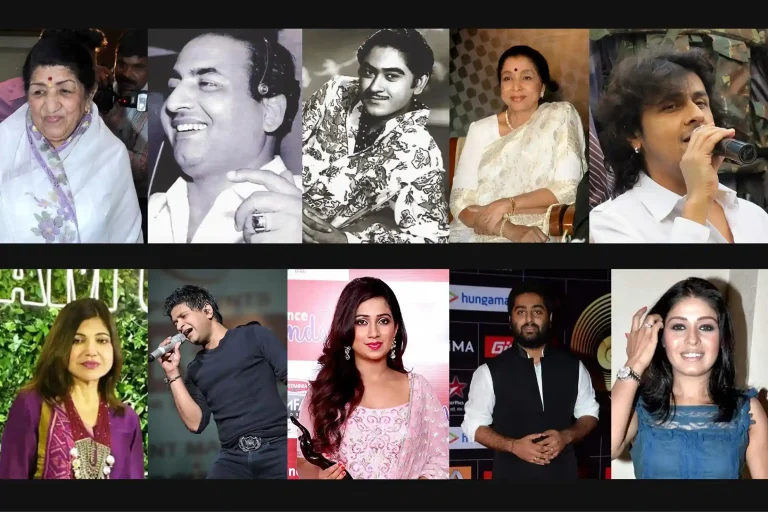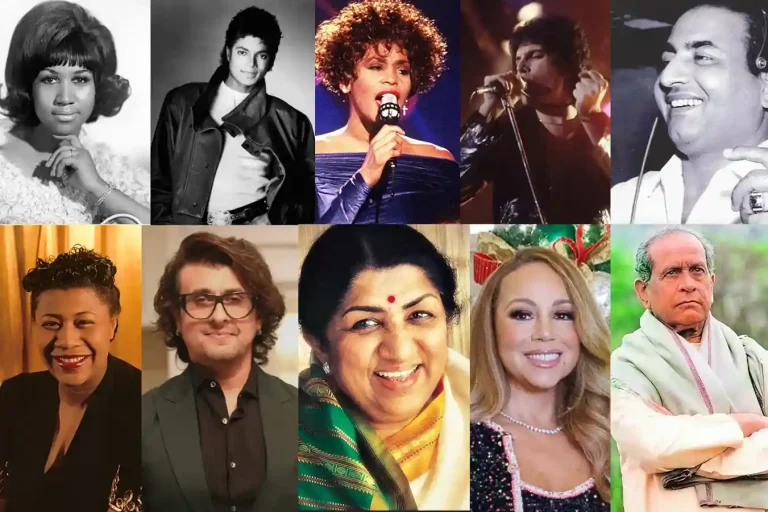All Topics
- Alchemizing Music Concepts for Students
- Artist Spotlight
- artium gift card
- Artium Maestros
- Artium News
- buying guide
- Carnatic Music
- Devotional Music
- Editorials by Ananth Vaidyanathan
- Film Music
- Guitar
- Hindustani Classical Music
- Indian Classical Music
- Indian Folk Music
- Insights
- Instruments
- Karaoke Singing
- Keyboard
- Kids Music
- maestros
- Music Education
- Music for Kids
- Music Industry
- Music Instruments
- Music Legends
- Music Theory
- Music Therapy
- Piano
- piano guide
- Success Stories
- Tamil Film Music
- Telugu Film Music
- Time Theory
- Tools
- Uncategorized
- Vocal Singing
- Vocals
- western classical music
- western music
- Western vocal music
10 Soulful Tamil Film Songs You Need to Hear
10 Soulful Tamil Film Songs You Need to Hear

Table of Contents
Tamil cinema holds a musical soul. It birthed gifted composers, voices that soar. Their melodies are ever cherished and forever popular. Tamil music is a vibrant tapestry. It weaves Carnatic with Western grandeur, from orchestral might to minimalist grace, from synthesizers and electronic instruments. Most Tamil film songs from the 1960s and 1970s are a feast for every ear! This spirit allows directors to forge pure sound. Their sublime songs still cast a spell.
The 1960s and 70s were a golden era where K.V. Mahadevan and M.S. Viswanathan reigned. Their compositions are pure exhilaration. They inspired a generation. Then arrived Ilayaraaja’s genius. He continues to enchant his fans. From this same fertile ground, A. R. Rahman emerged. He is an Oscar winner and one of India’s top music composers. Tamil songs embrace every hue of emotion, from soft melody to joyful burst, tender romance to lively rhythm. Music, at its finest, is music for every soul.
You can find online Tamil songs that match your mood: adventure, nostalgia, romance. They perfectly capture the spirit of travel and love. We’ll share an essential collection of soulful Tamil film songs that weave through, making every mile musical.
Your Perfect Road Trip Soundtrack or Playlist: Tamil Songs that Move You
Hit the road with the magic of Tamil music. These Tamil songs blend soul-stirring melodies with profound lyrics. Any Tamil film song list will range from timeless old songs like “Pachai Nirame” to energetic Tamil Hit Songs like “Kaadhalan—Urvasi Urvasi.”
Each note of Tamil music tells a story. On the open road, these narratives unfold with the changing scenery. The rhythmic pulse of a Tamil film song can match the hum of the engine, creating a seamless flow. Imagine “Vaaranam Aayiram,” its melody drifting through the car, painting landscapes in soft hues. Or the infectious energy of “Urvasi Urvasi,” compelling you to tap your foot, chasing the horizon with joyful abandon. Songs like “Malargale” from “Love Birds” and “Hosanna” from “Vinnaithaandi Varuvaayaa” are perfect for a romantic trip.
“Munbe Vaa,” “Rasali,” and “Thalli Pogathey” provide soothing melodies that are perfect for scenic drives.

10 Timeless Tamil Film Songs That Will Echo in Your Heart
Tamil cinema has a rich history of producing some of the most talented music composers and singing superstars, along with a collection of evergreen, memorable, and popular songs. Its music is influenced by various styles, including Carnatic, Western orchestral, minimalist compositions, synthesizers, and electronic instruments. As a result, Tamil songs provide a diverse listening experience for any music lover.
Timeless Tamil film songs have a way of staying with us, echoing in our hearts long after the music stops. From soulful melodies to energetic numbers, these tracks define generations and emotions. If you’re looking for the best Tamil film songs to explore or sing, this list is a perfect starting point.
Each song captures the richness of Tamil cinema’s musical legacy. The good news? You can learn all these listed songs from online platforms offering Tamil Film Music Classes. All these songs are still revered, sung, and admired by countless people who love Tamil songs.
- Mei Nigara
The two lines of the song — Mei Nigara Mellidaiyae, Poi Nigara Poongodiyae — “Is all the truth in the world a match for you? And are all the lies in the world comparable to you, O girl as lovely as a blooming flower?”
Mei Nigara (மெய் நிகரா) from the Tamil movie 24 primarily expresses deep, soulful longing and a yearning for an irreplaceable presence. The phrase can be interpreted as “Are you my ultimate truth/reality?” It delves into the overwhelming feeling of a person becoming the absolute center of one’s existence, questioning whether this profound connection is truly tangible or just a beautiful dream.
The song resonates deeply with listeners due to its raw emotional vulnerability and Sid Sriram’s powerful vocals. A.R. Rahman’s unique composition, often described as experimental, creates an immersive atmosphere that amplifies the feeling of intense romantic yearning and even a touch of existential wonder. Its blend of traditional melody with contemporary sounds makes it broadly appealing.
While “Mei Nigara” doesn’t strictly adhere to a single classical raga throughout, A.R. Rahman often draws inspiration from various Carnatic (South Indian Classical) ragas. He blends them with Western orchestral and contemporary elements. Some analyses suggest subtle hints of Hindolam raga (a Carnatic raga) in parts, though it’s not a pure classical rendition. It is rooted in Indian Classical music, specifically the Carnatic tradition, given its language and foundational melodic structures, even with its modern fusion.
- Naan Varuvene
“Naan Varuvene” (I will come) from the movie Raavanan is a haunting and poignant song composed by A.R. Rahman. Its evocative and melancholic nature makes the song sound beautiful, and as Rahman often blends his compositions with Western elements, creating a grandeur effect.
The song’s meaning is deeply tied to the film’s complex narrative. It speaks of a longing, a promise to return, and a profound emotional connection. Veera (played by Vikram), who sings it, represents his desperate love and eventual acceptance of Ragini’s (Aishwarya Rai) choice, even as it breaks him. The lyrics convey a sense of yearning, fate, and perhaps hope for redemption or reunion beyond the physical.
Singers: A. R. Rahman, Jali Fily Cissokho
Composer: A. R. Rahman
Lyricist: Vairamuthu
Listeners resonate with “Naan Varuvene” because of its raw emotional vulnerability. Rahman’s sparse yet powerful arrangement, combined with the soulful vocals (often featuring Rahman’s voice), creates an immersive experience. It taps into universal themes of unrequited love, sacrifice, and the enduring power of connection, making it profoundly moving despite its tragic context within the film.
- Aararoo
“Aararoo” from the 2016 Tamil movie “24,” composed by A.R. Rahman and sung by Sakthishree Gopalan, is a soulful lullaby. The word “Aararoo” is a traditional Tamil onomatopoeia used in lullabies to soothe a child’s sleep. The song’s lyrics, penned by Madhan Karky, express a parent’s deep love and devotion, seeing their child as their entire world and future. It’s a poignant ode to parenthood, filled with tender promises and unconditional affection.
The song resonates deeply with listeners because of its universal theme of parental love and the soothing, almost hypnotic. It evokes a sense of peace, security, and profound emotional connection, transcending language barriers. Many relate it to their own experiences with children or the love they received from their parents.
While A.R. Rahman often blends various musical styles, “Aararoo” has strong roots in Indian Classical music, specifically with strong influences of Carnatic music. While a specific raag for “Aararoo” isn’t explicitly stated as universally agreed upon in analysis, it carries the characteristics of a lullaby often found in ragas like Shankarabharanam and Neelambari (Bilaval and Khamaj in Hindustani) or similar soothing, melodic ragas that evoke tenderness and peace. Indian classical music broadly encompasses Hindustani (North Indian) and Carnatic (South Indian) traditions. Given Rahman’s background and the Tamil context, the influence leans heavily towards Carnatic music.
- Merku Karaiyil
The song “Hope (Merku Karaiyil)” from the Tamil movie Aruvi is a poignant melody that translates to “The western shore has turned red, my heart awaits dawn.” It speaks of waiting, longing, and the fading of something beautiful, yet holding onto a quiet hope for a new beginning. The lyrics evoke a sense of introspection and vulnerability, capturing the bittersweet anticipation of change. Sung by Vedanth Bharadwaj and Bindhumalini Narayanaswamy, who also composed the film’s music, it is a delicate blend of voice and feeling.
The song resonates deeply with listeners due to its raw emotional honesty and minimalistic arrangement. It provides a sense of solace and understanding for anyone who has faced adversity or uncertainty, conveying that even in darkness, a sliver of hope can persist.
The raag used in “Merku Karaiyil” is Mishra Pilu. Pilu is primarily a Hindustani classical raga, often characterized by its light, romantic, and devotional mood. While it has some similarities to certain Carnatic ragas, its melodic structure and typical improvisational phrases align more closely with Hindustani classical. Its “Mishra” (mixed) aspect indicates the use of additional notes beyond the strict framework of Pilu, adding to its emotional depth and appeal.
- Unnai Kelai
“Unnai Kelai” from the Tamil movie Desam (the Tamil dubbed version of Swades) is a profoundly philosophical and introspective song. The lyrics, sung by T. L. Maharajan and Hariharan, primarily convey a powerful message of self-discovery and the importance of listening to one’s inner voice. The song urges the listener to look within, trust their conscience, and find their path rather than blindly following others. The song suggests that proper guidance and purpose come from within oneself.
This message profoundly resonates with listeners because it touches on universal human experiences of doubt, decision-making, and the quest for meaning. In a world often filled with external noise and societal pressures, “Unnai Kelai” serves as a gentle yet firm reminder to reconnect with one’s authentic self, fostering a sense of empowerment and introspection.
Given the song’s contemplative nature and the blend of traditional and contemporary sounds, it likely draws from Indian Classical music, specifically Jog in Hindustani and Tilan in Carnatic.
- Vennilavin Theril Yeri
“Vennilavin Theril Yeri” (Riding on the Moonlight Chariot) from the 1994 Tamil film Duet, composed by A. R. Rahman and beautifully sung by K. J. Yesudas, is a poignant and melancholic song. The lyrics penned by Vairamuthu, often depicting themes of separation, loss, and the pain of longing, paint a picture of someone consumed by sorrow. It speaks of a lost or unrequited love, with the imagery of the moonlit chariot symbolizing a journey into solitude or a yearning for a past connection.
The song resonates deeply with listeners due to its raw emotional honesty. K. J. Yesudas’s tender yet powerful vocals convey the heartbreak with immense sensitivity, allowing anyone who has experienced love, loss, or longing to connect with its sorrowful beauty. It evokes empathy and a sense of shared human experience, making it a timeless classic.
While A. R. Rahman is known for his innovative fusion, “Vennilavin Theril Yeri” prominently features the saxophone and has a strong foundation in Indian Classical music, specifically Carnatic music. Its serene and contemplative melody strongly hints at its Carnatic roots, often characterized by intricate structures and emotional depth.
- Chillendra Chillendra
“Chillendra Chillendra” from the Tamil movie Thirumanam Ennum Nikkah is a melodious and romantic song that beautifully captures the nascent feelings of love and affection. The title, “Chillendra Chillendra,” evokes a soft, gentle breeze, mirroring the tender and refreshing emotions expressed in the lyrics. The song speaks of the subtle ways love enters one’s life – like a gentle raindrop or a light wind – and the profound change it brings to one’s world and perspective. It expresses the joy of newfound feelings and the desire to be immersed in the beloved’s presence.
Ghibran composed the song, and Kadhal Mathi and Munna Shaoukat Ali wrote the lyrics. Sundar Narayana Rao, Kaushiki Chakrabarty, Munna Shaoukat Ali, and Ghibran himself sing it.
This song resonates deeply with listeners because of its innocent portrayal of love. It evokes the universal experience of being smitten and the delicate flutter of a heart experiencing love for the first time. The blend of poetic lyrics and enchanting music creates an atmospheric, calming, and uplifting experience, making it a favorite for quiet contemplation or romantic daydreaming moments.
“Chillendra Chillendra” is primarily based on Raga Kalyani (Melakartha 65) in Carnatic music. Kalyani is a prominent and auspicious raga in Carnatic music, known for its grandeur and ability to evoke various emotions, including devotion, love, and heroism. It is classified as Indian Classical music, specifically belonging to the Carnatic roots.
- Yaar Ezhudhiyadho
“Yaar Ezhudhiyadho” from the Tamil film Thegidi is a melancholic yet beautiful song that delves into unspoken love and destiny themes. The lyrics poetically question who authored the feelings and connections that emerge between two individuals, hinting at a love story that seems predetermined yet remains unexpressed. It captures the bittersweet essence of yearning and the subtle emotions of a budding romance, where unspoken glances and silent understandings hold profound weight.
The song resonates deeply with listeners who have experienced quiet affections or unspoken, unrequited love. It reflects the universal human urge to ponder fate in matters of the heart. With its gentle melody and poignant lyrics, the song evokes tender longing and introspection—making it a cherished companion for moments of solitude and reflection.
Singer: D. Sathyaprakash
Lyricist: Kabilan
Composer: Nivas K. Prasanna
“Yaar Ezhudhiyadho” has a serene and classical feel that suggests an influence from a beautiful Carnatic raga, Anandabhairavi.
- Kaarkuzhal Kadavaiye
“Kaarkuzhal Kadavaiye” from the Tamil movie Vada Chennai is a poignant and evocative song about longing and separation. The title, “Kaarkuzhal Kadavaiye,” roughly translates to “Oh, woman with hair like dark clouds.” The lyrics express a deep yearning for a lost or distant love, questioning where she has gone and how her absence affects the protagonist. It vividly paints a picture of a lover immersed in the thoughts of his beloved, with every sight and sound that reminds him of her. The song’s beauty lies in its poetic imagery and emotional depth, capturing the bittersweet ache of separation and the hope for a reunion.
The song resonates deeply because of its raw emotional honesty. Many listeners can connect with the universal feeling of missing someone dearly, of a love that continues to haunt and inspire. The melancholic yet beautiful melody enhances this feeling, making the longing palpable.
Singer(s): Santhosh Narayanan, Sriram Parthasarathy, Pradeep Kumar, Ananthu, Vijaynarain
Lyricist: Vivek
Composer: Santhosh Narayanan
Santhosh Narayanan, the composer, is known for his unique blend of folk, classical, and contemporary sounds. His compositions often feature strong melodies with underlying classical nuances rooted in Indian classical music, specifically Carnatic traditions, but delivered with a modern feel.
- Theekuruvi
“Theekuruvi” from the 2004 Tamil film Kangalal Kaidhu Sei is a captivating and somewhat mysterious song that translates roughly to “Fire Sparrow” or “Fire Bird.” The lyrics, penned by Thenmozhi, are poetic and evocative, painting a picture of intense, almost magical allure and infatuation. It describes a captivating presence – like a “fire sparrow” or a “sweet fruit in the hands of fire” – that ignites desire and enchantment, urging one to embrace this fiery passion. Harini, Johnson, and Mukesh sing the song, their voices blending to create its distinct and alluring quality.
The song resonates deeply with listeners due to its unique mystique and passionate expression blend. The imagery is vivid, making it relatable to anyone who has experienced an overwhelming attraction or a spellbinding connection with another person. The lyrics convey a sense of being drawn in, unable to resist a potent charm.
The song’s music is composed by the legendary A.R. Rahman. It’s known for its funky and experimental sound. Many of Rahman’s compositions draw heavily from Indian Classical music, particularly Carnatic. “Theekuruvi” is speculated to be based on the Mohana raga (Carnatic) or its Hindustani equivalent, Bhoop or Bhoopali. This classification fits the Indian Classical tradition, showcasing how Rahman masterfully infuses classical depth into modern, popular arrangements.
Learn Tamil Film Music Online at Artium
Popular Tamil film songs have a timeless charm that captures hearts — and now, you can learn to sing them too! With Artium’s Tamil Film Music course curated by the legendary K.S. Chitra, you’ll be guided by expert teachers through every note and nuance.
Enjoy personalized 1:1 training from our network of 400+ top Indian music educators, all from the comfort of your home. We offer online music classes for all ages. Whether you’re just starting out or already singing for fun, this course will help you sing your favourite Tamil hits with confidence and expression. Start your journey today and bring these beloved songs to life!
At Artium, you can learn many of the best Tamil film songs — from golden oldies that bring back cherished memories to the latest chartbusters that rule today’s playlists. Whether it’s the soulful melodies of Ilaiyaraaja, the timeless voice of S.P. Balasubrahmanyam, or the contemporary hits of A.R. Rahman, our course covers them all.
You’ll explore the evolution of Tamil cinema music, understand its lyrical beauty, and master singing styles across decades. With guidance from expert teachers and a structured approach, you can confidently sing classic and modern Tamil songs with emotion, technique, and flair.
[Validated by Srividya JV, Faculty – Tamil Music, Artium Academy]
FAQs on Tamil Songs
From Ilaiyaraaja’s soulful classics to A.R. Rahman’s timeless hits, Tamil cinema offers gems like “Mandram Vantha,” “Ennavale,” and “Vaseegara.” If you’re starting, our expert-guided 1:1 sessions help you sing these with clarity and emotion — even if you’re new to singing.
Absolutely! Our teachers explain the meanings, pronunciations, and emotions behind every line. With 1:1 personalised attention and curated lessons by legend K.S. Chitra, language is never a barrier—just pure melody.
Tamil film music beautifully blends classical elements with cinematic expression. In our online sessions, expert teachers help you build voice control, bhava (expression), and playback-style singing techniques unique to film music.
Yes! All age groups at Artium can learn and enjoy Tamil movie songs. Whether you’re a kid discovering music, a teen exploring your vocal style, or an adult rekindling your passion, our 1:1 online classes are designed to match your pace and experience. With expert guidance and a curriculum curated by K.S. Chitra, anyone can start singing confidently, no matter their age!
Our Tamil Film Music courses are designed for all age groups. Whether you’re 6 or 60 years old, personalized sessions allow you to learn at your own pace and skill level, guided by trained professionals across India.
The course is curated by Padma Bhushan awardee K.S. Chitra and taught by top professionals in 1:1 live online classes. Anyone from anywhere can learn Tamil movie songs online at Artium. It includes old and new hit songs, vocal techniques, and performance prep — all in a structured, goal-driven format.






